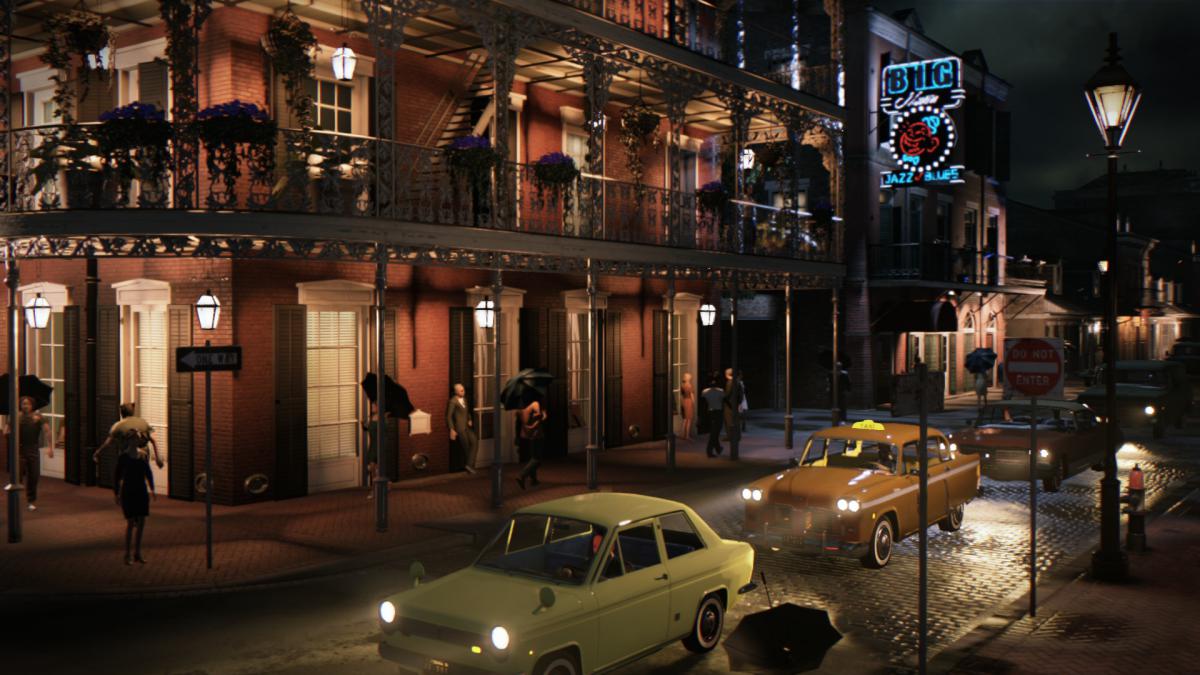Politics is too central to Mafia III to just ignore it
Politics in video games has been at the epicenter of a fascinating movement and anti-movement over the past few years. A reductive but simple view of it is that some people want change and others don’t. It can be uncomfortable because the issue itself is politics, and politics is almost always uncomfortable. There’s a reason it’s one of the three things you should never talk about at the dinner table.
With Mafia III, we’re forced to talk about the game’s politics. There’s no way around it. Racial tensions and cultural climate are so interwoven into what the game is that it would be impossible to politely sidestep it. Doing so would be doing it a disservice.
At E3, we saw a lot of Mafia III yet we saw hardly any at the same time. Publisher 2K and developer Hangar 13 only had a 25-minute theater presentation meant to introduce us to the main characters. Executive producer Andy Wilson told us that the developer is treating New Bordeaux, a fictionalized take on 1960s New Orleans, as one of the protagonists. That’s a city and an era with a lot to unpack.
Simply put: A lot of awful shit happened in the American south in the 1960s. The American Civil Rights movement was coming along, but that doesn’t mean everyone was accepting of it. African Americans were often treated like second-class citizens. They were refused service at restaurants, kept out of public schools, denied the right to vote. The most extreme examples usually resulted in violence as they were sprayed with fire hoses, beaten, or murdered. Many historians have more eloquently documented the Civil Rights movement than I ever could. But, it’s important to remember the fucked-up stuff that African Americans had to endure.
For Hangar 13 to make an effective game out of Mafia III, it has to capture this mood. The anti-hero protagonist is Lincoln Clay, a young black man and a war veteran. He’s out to build a new crime empire and topple the Italian syndicate. That’s a story that could fit most mafia-styled gangster pieces. But, it’s the uniquely powderkeg time and place in American history that could turn Mafia III into something special.
If that’s to happen, Mafia III needs to be sincere and brutally honest in its depiction of the 1960s south. A developer at Hangar 13 tells us that’s what the studio is shooting for. Historians were hired to help research and advise regarding the tone of the game. Hangar 13 isn’t reaching for sensationalism (even though it’s rather pulpy in its violent revenge story), but it’s absolutely aiming for authenticity.
Luckily, Mafia III has the right kind of groundwork to convey this sort of feeling. Open-world games, in theory, should be more adept at environment-building and mood-setting because they offer a non-linear setting to get lost in. There should be hateful graffiti scrawled on walls. There should be racial slurs occasionally heard on the city streets. There should be everything that makes you feel as if you’re in an uncomfortable New Orleans during a tumultuous time.
We won’t know if Hangar 13 succeeds in this endeavor until we’ve had a chance to be immersed in Mafia III. The presentation showed quick sizzle-reel cuts to the likes of Ku Klux Klan rallies, but how that kind of stuff is handled remains to be seen. If it’s with the proper dour weight that it deserves, then Mafia III will undoubtedly be one of the most interesting games in years. Regardless, we have to talk about it.








